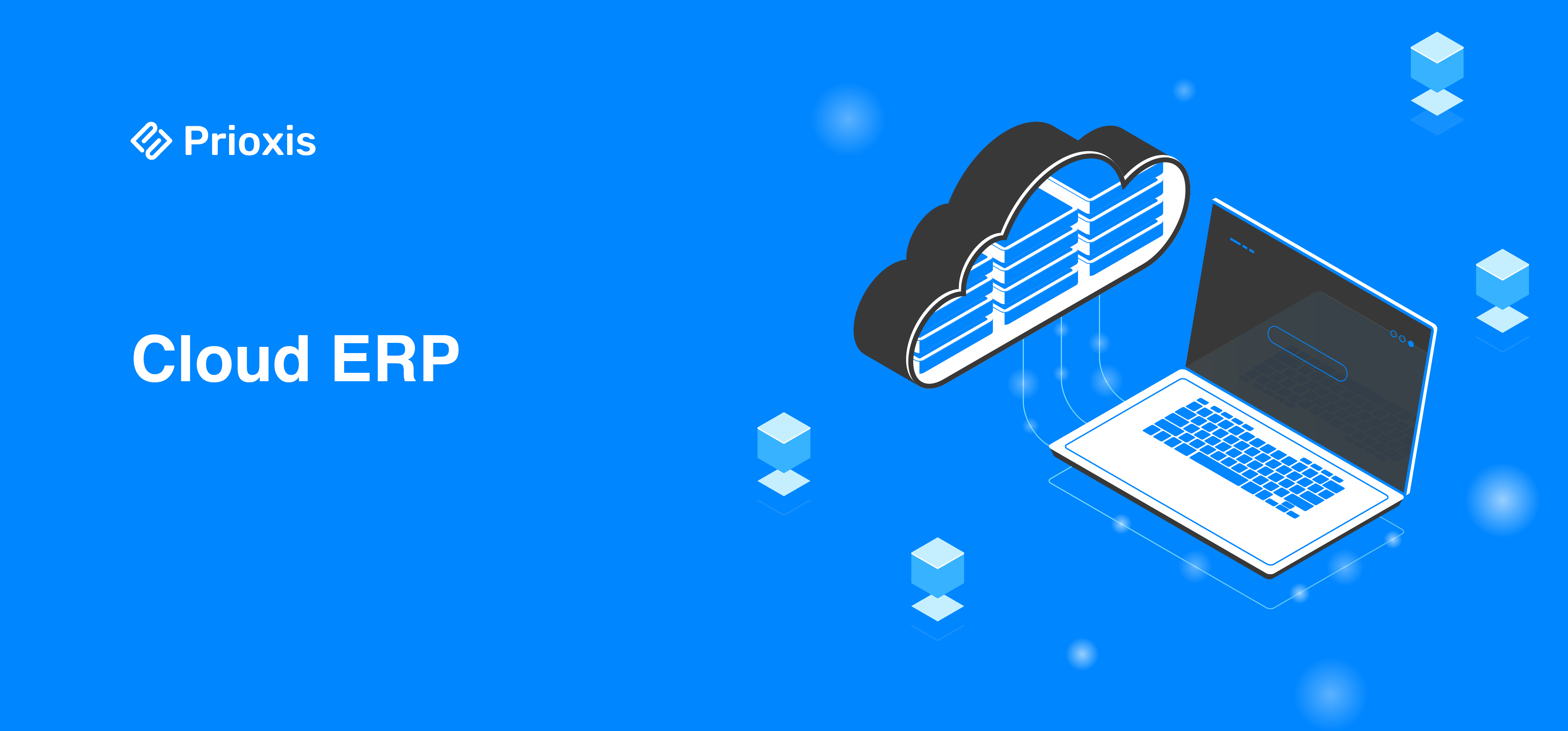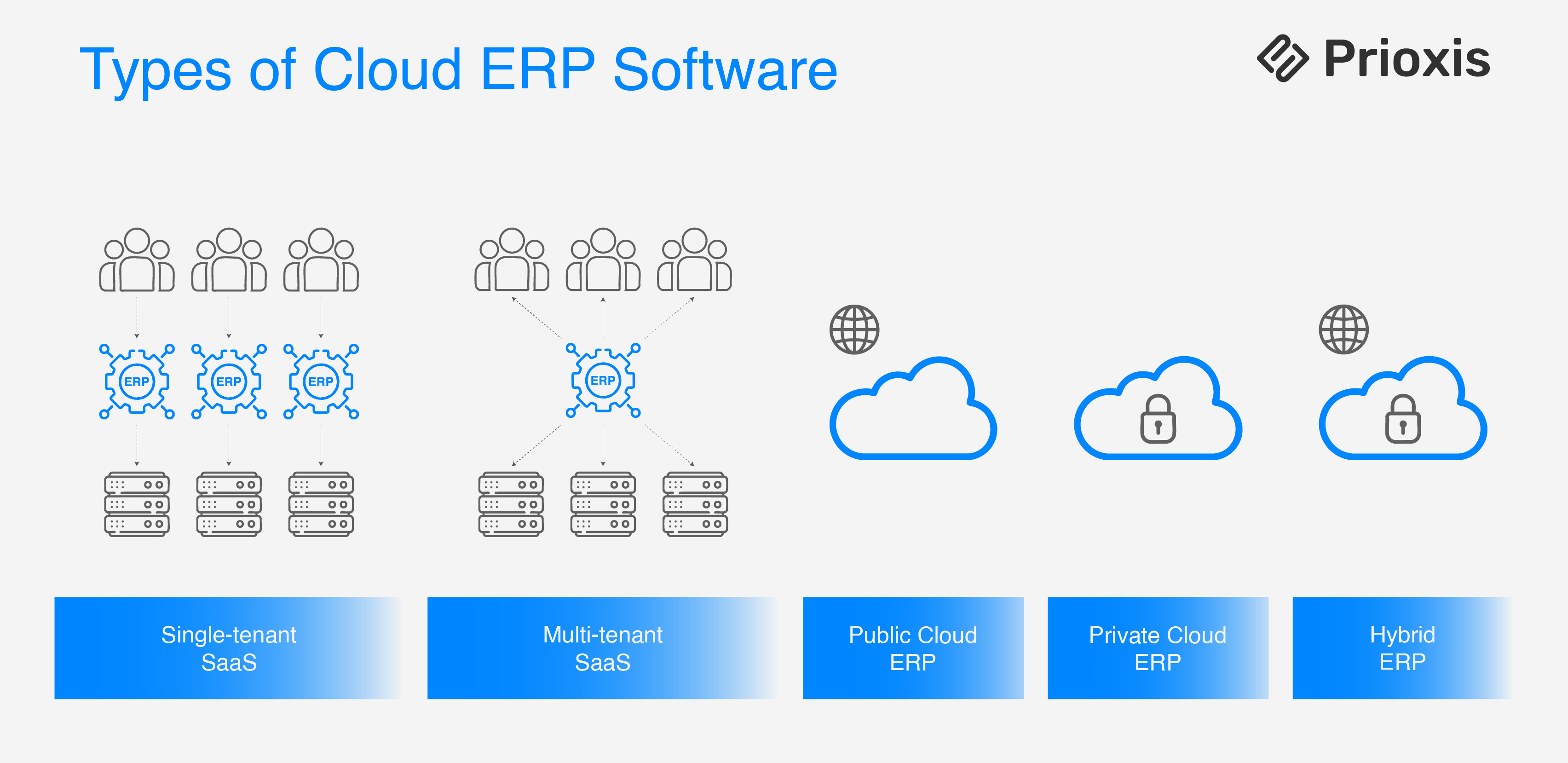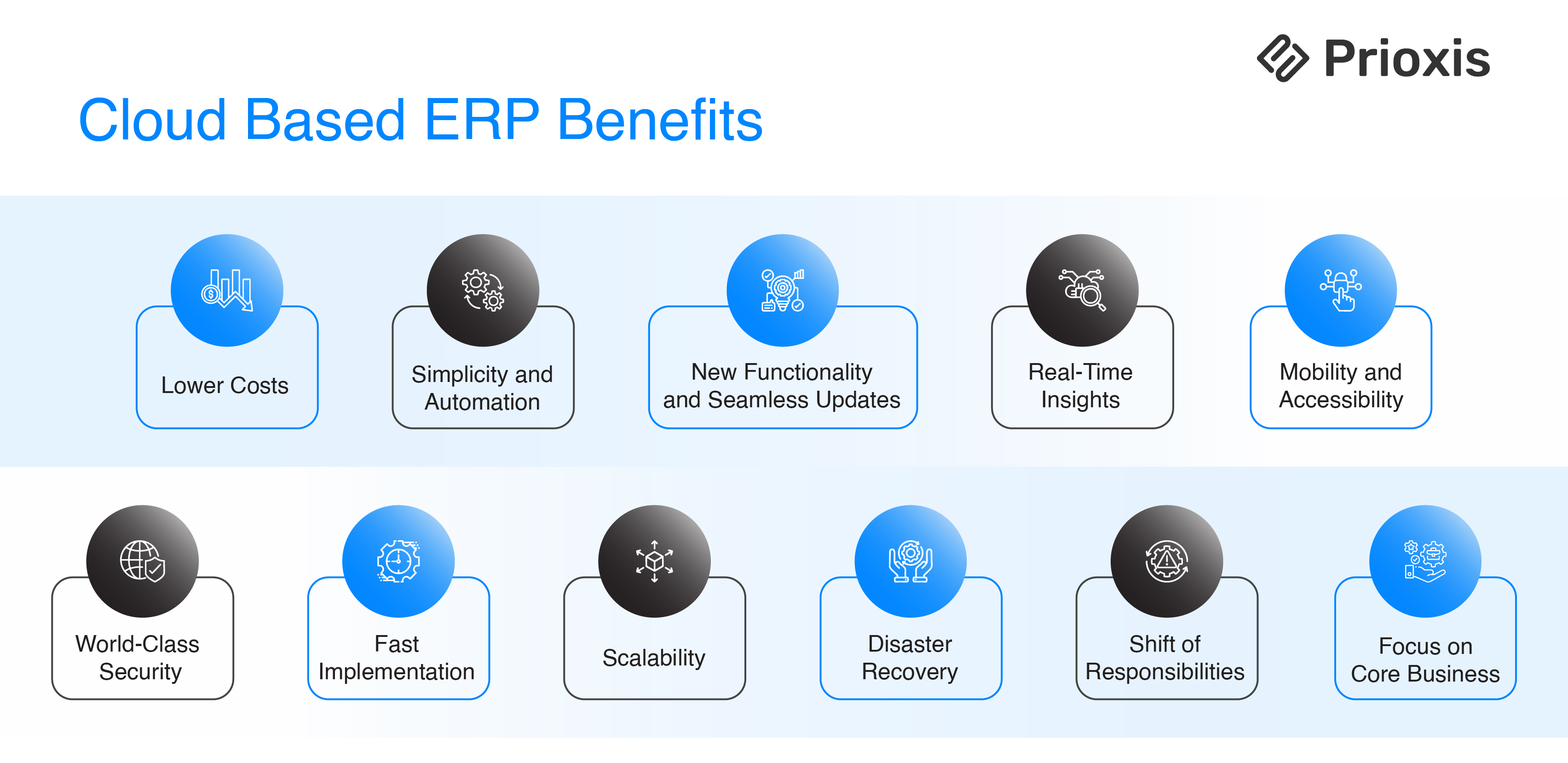
Table of Content
ERP systems have been around for decades and are widely recognized among businesses and organizations. As companies continue shifting toward digital transformation, cloud ERP has emerged as a modern alternative to traditional legacy systems. It is rapidly gaining market dominance due to its flexible hosting capabilities, cost-effectiveness, and ease of user access.
The cloud ERP market is growing at a 11.2% CAGR and will reach $138.34 billion by 2030.
If you’re planning to customize or upgrade your existing ERP system, now is the perfect time to consider migrating to a Cloud ERP solution.
This article provides all the essential information you need to make an informed decision about adopting a cloud ERP or developing a bespoke ERP solution.
ERP, or Enterprise Resource Planning, is a platform that integrates an organization’s core business processes, automates repetitive tasks, centralizes data, and enhances decision-making.
ERP systems bring transparency and data visibility across the organization, enabling better and more informed decision-making.
They manage multiple functions across enterprises, mid-sized, or small businesses and can be customized to fit specific industry needs.
A Cloud ERP (Enterprise Resource Planning) system is an improved, optimized, and digitized version of previously available legacy ERP systems. Cloud ERP systems do not require on-premises IT infrastructure or licensing to access them.
They are hosted on cloud servers, eliminating the need for heavy installations and allowing users to access the system through a web browser. With flexible subscription-based pricing, businesses pay only for the features they need, making cloud ERP far more accessible and cost-efficient.
Cloud ERP boosts efficiency across all departments. For example, your sales team receives real-time inventory updates, while your finance team can easily monitor cash flow and quickly respond to audit or performance data requests.
Cloud ERP systems are divided into two main types, which are further categorized based on their architecture and deployment models.

Let’s explore the benefits of cloud-based ERP systems compared to traditional ERP software solutions.

One of the biggest perks of cloud ERP is the cost savings. With a subscription model, there's no need for hefty upfront investments in hardware or software. Your provider takes care of upgrades and maintenance, slashing IT costs. For businesses moving away from on-premises ERP, this means no more spending on servers, database setup, or extra IT staff. It’s a win-win: lower costs and less hassle.
Cloud ERP systems streamline your business operations. They consolidate old, standalone applications into one unified system. This ERP integration simplifies workflows and automates processes, leading to new efficiencies across the board. You’ll spend less time managing disconnected systems and focusing more on what matters.
With cloud ERP, staying up to date is a breeze. Vendors handle all system upgrades and updates, ensuring your software runs the latest and greatest version. These updates are quick and typically happen during off-hours, so there’s minimal disruption to your business. No more lengthy, costly upgrades – just smooth, ongoing improvements.
Cloud ERP systems are designed to handle big data, providing real-time analytics that legacy systems can’t match. You can access up-to-the-minute information and insights, making better, data-driven decisions. Spot trends, predict changes, and optimize resources – all from a single, integrated platform.
In today’s world, you need to be able to access your business data anytime, anywhere. Cloud ERP makes this possible. Whether working from home, on the road, or at a client’s site, you can connect to your ERP system from any device with an internet connection. This mobility ensures your team has the information they need, boosting productivity and collaboration.
Security is a top priority for cloud ERP vendors. They employ professional security experts for data protection, backups, and disaster recovery. This means your data is stored in highly secure, redundant data centers. With robust security measures like encryption and access controls, your business is well-protected against breaches and data loss.
Implementing a cloud ERP system is much quicker than setting up an on-premises solution. The technical environment can be configured in just 24 hours, and modern user interfaces make the software easy to adopt. This rapid deployment means less downtime and a faster return on investment.
Growth can be unpredictable, and that’s where cloud ERP shines. It allows you to scale your resources up or down as needed quickly. Whether expanding rapidly or adjusting to seasonal demands, cloud ERP can handle the changes without requiring significant hardware investments. This flexibility helps your business stay agile and efficient.
Cloud ERP systems offer robust disaster recovery capabilities. Your data is backed up regularly and stored in geographically dispersed locations, ensuring it is safe from local disruptions. If an unexpected event occurs, like a natural disaster or hardware failure, you can rest easy knowing your data is secure and accessible.
Cloud ERP systems integrate advanced technologies like AI and machine learning to automate tasks and provide intelligent insights. These technologies help with everything from predictive maintenance to fraud detection, enhancing operational efficiency and security. AI-powered analytics can also improve decision-making, making your business more innovative and responsive.
One of the standout benefits of cloud ERP systems is the significant reduction in the IT burden. Traditionally, businesses have had to manage and maintain their hardware and software, which includes installing and updating applications, managing data centers, and handling security and compliance issues. With cloud ERP, these responsibilities shift to the cloud provider. This transfer not only alleviates the workload on your IT department but also ensures that these critical tasks are handled by specialists who focus solely on maintaining optimal performance and security of the system.
By outsourcing IT maintenance and management to the cloud provider, your internal IT team can shift their focus to more strategic initiatives that drive business growth and innovation. Instead of spending time on routine maintenance tasks, IT professionals can now engage in projects that enhance operational efficiency, improve customer experiences, and support the organization's overall strategic goals. This shift in focus can lead to a more dynamic and forward-thinking IT department capable of contributing significantly to the business’s competitive edge.
An ERP (Enterprise Resource Planning) system, often called an ERP suite, is a set of connected modules or business applications that work together. A Module in ERP refers to a specific business area. Common areas include finance, accounting, human resources, sales, procurement, logistics, and supply chain management. It includes modules such as finance, accounting, sales, and more, each designed to manage specific areas of the business.
These modules share a common database, which means they can easily exchange information and use the same data to function. Companies can choose the modules they need and add more as they grow or their needs change.
Thus, the cloud ERP system allows the manager to analyze complex data in minutes and make better decisions based on it.
Despite its many benefits, implementing a cloud ERP system can present several challenges, but with careful planning and attention, they can be effectively resolved.
Cloud ERP is proving to be a game-changer for businesses today. It allows you to access all your vital business data from anywhere, at any time. With real-time insights, you can make quick, informed decisions. This swiftness in decision-making can prove to be a make-or-break factor for your business.
If you’re considering integrating or migrating to cloud ERP, now is the perfect time to do so. To better understand cloud ERP's benefits for your business, contact our experts today. We have 5+ years of experience delivering enterprise-grade solutions with a 99% success rate.
Get in touch